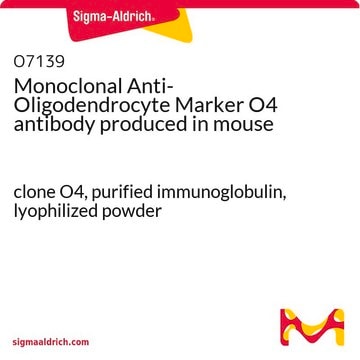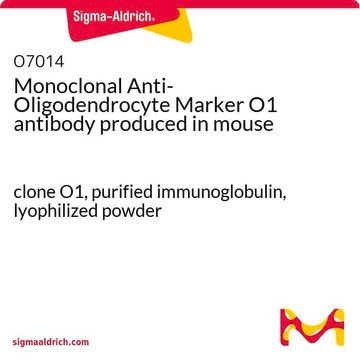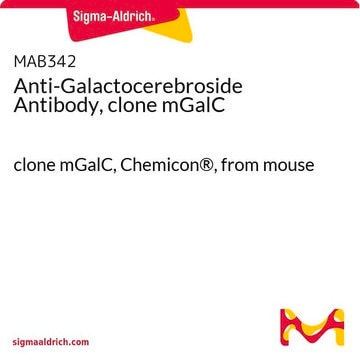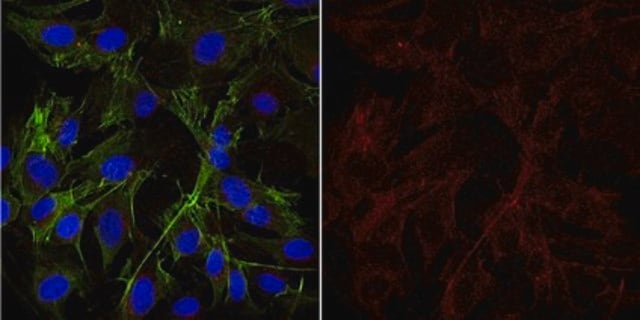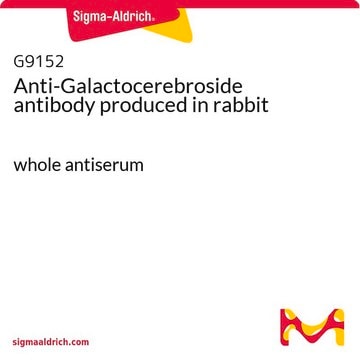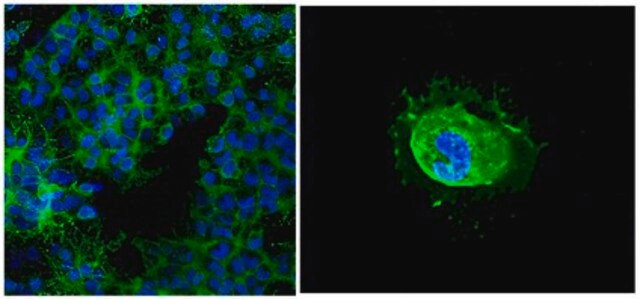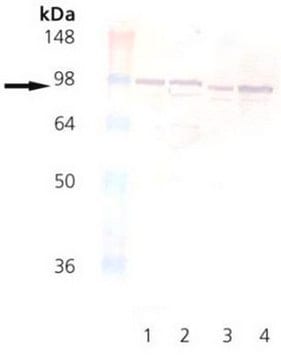MAB345A4
Anti-O4 Antibody, clone 81, Alexa Fluor™488 Conjugate
clone 81 (mAB 04), from mouse, ALEXA FLUOR™ 488
About This Item
Empfohlene Produkte
Biologische Quelle
mouse
Qualitätsniveau
Konjugat
ALEXA FLUOR™ 488
Antikörperform
purified immunoglobulin
Antikörper-Produkttyp
primary antibodies
Klon
81 (mAB 04), monoclonal
Speziesreaktivität
rat
Speziesreaktivität (Voraussage durch Homologie)
human (based on 100% sequence homology), bovine (based on 100% sequence homology), chicken (based on 100% sequence homology), mouse (based on 100% sequence homology)
Methode(n)
immunocytochemistry: suitable
Isotyp
IgM
Versandbedingung
wet ice
Posttranslationale Modifikation Target
unmodified
Allgemeine Beschreibung
Spezifität
Immunogen
Anwendung
Neurowissenschaft
Neurodegenerative Krankheiten
Qualität
Immunocytochemistry Analysis: A 1:100 dilution of this antibody detected O4 in undifferentiated rat oligodendrocyte precursor cells.
Physikalische Form
Lagerung und Haltbarkeit
Hinweis zur Analyse
Undifferentiated rat oligodendrocyte precursor cells
Rechtliche Hinweise
Haftungsausschluss
Sie haben nicht das passende Produkt gefunden?
Probieren Sie unser Produkt-Auswahlhilfe. aus.
Lagerklassenschlüssel
12 - Non Combustible Liquids
WGK
WGK 2
Flammpunkt (°F)
Not applicable
Flammpunkt (°C)
Not applicable
Analysenzertifikate (COA)
Suchen Sie nach Analysenzertifikate (COA), indem Sie die Lot-/Chargennummer des Produkts eingeben. Lot- und Chargennummern sind auf dem Produktetikett hinter den Wörtern ‘Lot’ oder ‘Batch’ (Lot oder Charge) zu finden.
Besitzen Sie dieses Produkt bereits?
In der Dokumentenbibliothek finden Sie die Dokumentation zu den Produkten, die Sie kürzlich erworben haben.
Unser Team von Wissenschaftlern verfügt über Erfahrung in allen Forschungsbereichen einschließlich Life Science, Materialwissenschaften, chemischer Synthese, Chromatographie, Analytik und vielen mehr..
Setzen Sie sich mit dem technischen Dienst in Verbindung.
